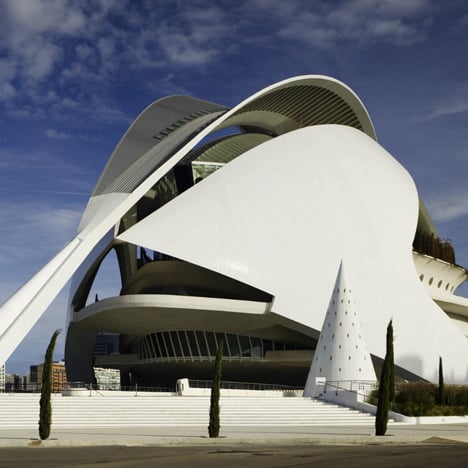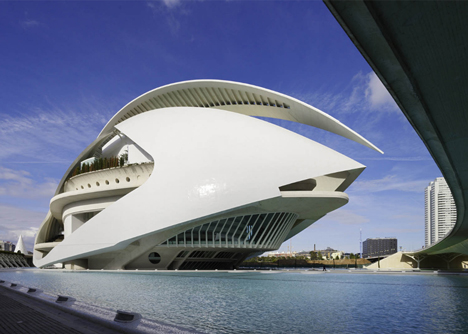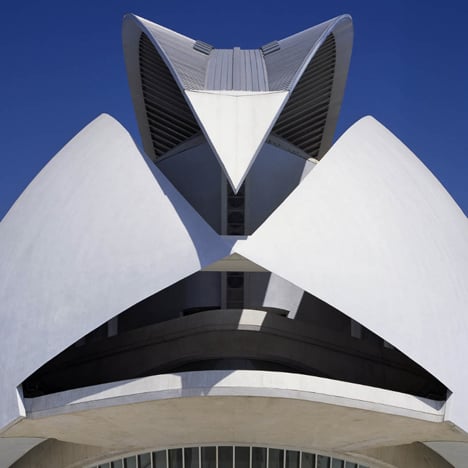
Santiago Calatrava wins legal battle against "insulting and degrading" website
News: a political party has been ordered to pay Spanish architect Santiago Calatrava over £24,000 in damages after being found guilty of defamation with a website that accused him of "bleeding Valencia dry".
Calatrava took left-wing Spanish party Esquerra Unida to court seeking the take down of a website called Calatrava te la clava – which loosely translates as Calatrava bleeds you dry – and £485,500 (€600,000) in compensation.
The site included a number of allegations regarding costs, delays and problems with projects by the architect's firm. When it launched it focused on Calatrava's Ciudad de las Artes y las Ciencias de Valencia (City of Arts and Sciences) complex, for which the party claimed he had billed the local government €100 million, adding that he was "bleeding Valencia dry".

The party also alleged that the project had cost more than four times its original budget, coming in at over £900 million (€1.1 billion).
A judge in Valencia ordered that the site be taken down immediately and replaced with a copy of the verdict, as well as pay the architect £24,270 (€30,000) in damages. The site published "objective truths" he said in his statement, adding that although the information on it was "within the limits of the criticism" in relation to freedom of expression, the site's name was "insulting and degrading".
Ignacio Blanco, a local politician in Valencia who is behind the site, told British newspaper the Guardian that he would probably appeal against the court's decision.
Esquerra Unida has now launched a site called Calatrava no nos calla – which roughly translates as Caltrava will not silence us – with the tag line "ruinous projects and invoices without VAT".

Update 21/05/14: An investigation into a problem with the roof of the Palau de les Arts Reina Sofia opera house in the City of Arts and Sciences has also ended favourably for Calatrava.
Sections of the trendcadis – a type of Catalonian mosaic – on the facade of the building came away in high winds last winter prompting further controversy around the project. But an investigation into the incident has determined that the fault lay with a subcontractor responsible for the application of adhesive used to secure the mosaic tiles and not Calatrava.
Calatrava and the construction conglomerate UTE, which originally completed the opera house in 2005, are now collaborating to have the damage repaired.
Calatrava has recently been involved in a number of other disputes in Spain.
In April 2013 the owners of the Calatrava-designed Ysios winery in the La Rioja region of Spain launched legal action against the architect over a leaky roof, demanding a contribution to the £1.7 million required for its repair after repeated attempts by Calatrava's builders to fix the problem.
In June 2013, he paid €3.3 million to settle a dispute after a conference centre he designed in the northern Spanish city of Oviedo suffered structural collapse.
In Bilbao, his footbridge to the Guggenheim has caused controversy after the city had to pay compensation to pedestrians who slipped on its glass surface in wet weather.